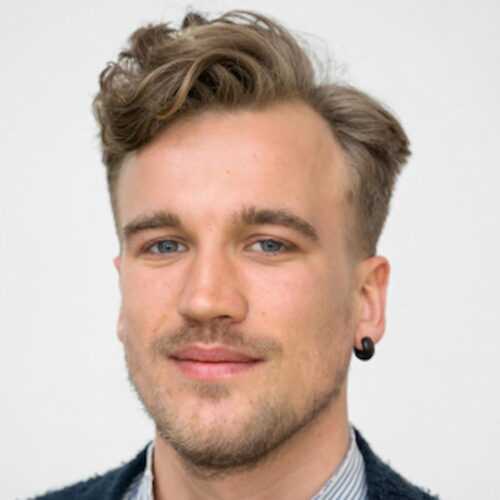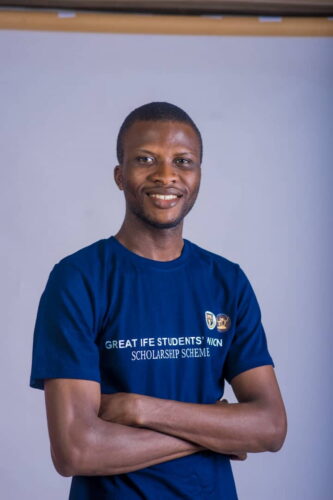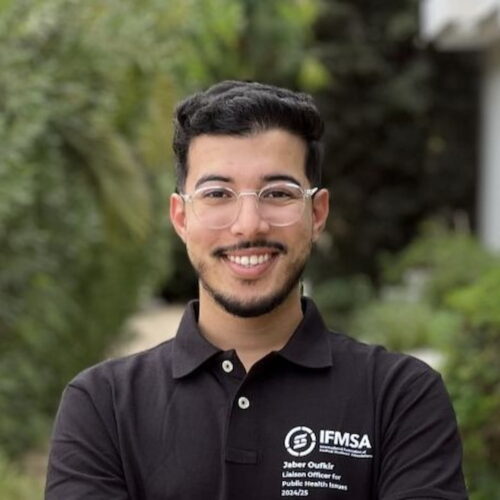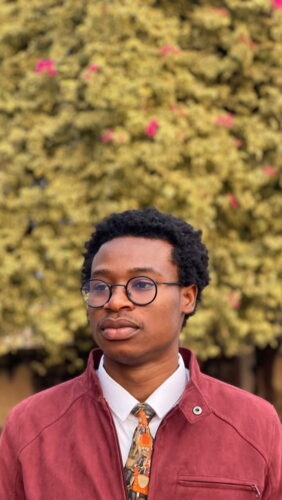
Nikolaus Mezger
Steering Committee / Next Generation Youth Council
News
Youth team wins Planetary Health Challenge with innovative mercury filtration solution
Amira Puji Hastuti accepts the Youth Prize Award on behalf of her team at the Planetary Health Annual Meeting 2025 in Rotterdam.
Chantal Riggs, Planetary Health Alliance Community Building and Engagement Coordinator, presents the Youth Prize to Amira Puji Hastuti at the Planetary Health Annual Meeting in Rotterdam.
Chantal Riggs announces the Youth Prize winners Planetary Health Annual Meeting 2025 in Rotterdam. Behind her is winner Ezekiel P. Guanbie of Liberia.
Youth Prize winner to Amira Puji Hastuti at the Planetary Health Annual Meeting 2025 in Rotterdam.
Amira Puji Hastuti accepts the Youth Prize Award on behalf of her team at the Planetary Health Annual Meeting 2025 in Rotterdam.
The Planetary Health Alliance (PHA) has announced the winner of its global Planetary Health Challenge 2025, a first-ever competition for youth designed to inspire innovative solutions addressing the impacts of destabilized natural systems on human health and all life on Earth. This year’s theme focused on freshwater. Three individuals, Ezekiel P. Guanbie of Liberia, Amira Puji Hastuti of Indonesia, and Duaa Suliman of UAE, comprised “Team 10,” whose project “MOZENA: Moringa Seeds and Zeolite-Based Mercury Filtration Through Indigenous Empowerment” was selected as the winner from three outstanding finalist teams.
The winning proposal leverages Indigenous knowledge in an innovative manner to reduce water pollution. Specifically, it addresses severe mercury contamination in the Kapuas River in Central Kalimantan, Indonesia, where Dayak Indigenous communities face significant health risks due to artisanal and small-scale gold mining (ASGM) operations.
“This project is a shining example of what happens when innovation is rooted in local knowledge, scientific insight, and deep respect for both people and the planet,” said Melvine Otieno, a member of the expert jury panel. “By combining moringa seeds, zeolite, and community empowerment, they’ve created a solution that’s not only technically sound and cost-effective but also honors the lived experience and leadership of Indigenous communities.”
MOZENA is a net-based filtration system that integrates biodegradable materials and natural absorbents to filter mercury and other pollutants in real-time from contaminated waterways. The system features:
The project proposal incorporates a 12-month implementation plan starting with a clean water leadership school, followed by inclusive water resource management, development of smart monitoring technology, establishment of a village clean water emergency bank, and water risk and health mapping.
Two other exceptional finalist teams presented compelling solutions:
Team 11 members Oguguom Chidiebere of Nigeria, Amadou Moussa Gariko of Mali, and Chris Obiri of Kenya proposed a global blueprint for community-led water waste regeneration, scaling Indigenous knowledge and circular systems from Imo State, Nigeria. Their approach uses phytoremediation with native grasses such as paspalum vaginatum combined with biochar to restore oil-polluted waterways.
Team 14, represented solely by Anand Mukherjee, a high school student from the U.S., presented “Water Wise Communities,” a knowledge hub and story map aimed at increasing community water awareness and action through the combination of modern data science, AI tools, and traditional ecological knowledge.
The Planetary Health Challenge 2025 gathered youth participants aged 13-35 from all around the world interested in addressing freshwater challenges through sustainable practices and technologies. Participants were organized into international teams of no more than three individuals to develop proposals for solutions focusing on 1) “regenerativity”, 2) fundamental shifts in human-environment relationships needed for a livable future, and 3) diversity and inclusion. Teams then gave online presentations to a jury of experts on April 23, 2025. On the expert panel were
The challenge was an initiative of PHA’s Next Generation Youth Council, an international advisory board composed of youth leaders. The competition served as a precursor to the 7th Planetary Health Annual Meeting (PHAM 2025) to be held October 7-10, 2025, at Erasmus University Rotterdam in the Netherlands. The Netherlands, with a quarter of its land below sea level and renowned canal systems, provides a meaningful backdrop for discussions about innovative water management and the bridges needed between disciplines to advance Planetary Health.
The winning team will receive mentorship and support to attend PHAM 2025 in Rotterdam, where they will have the opportunity to present their work to a global audience of experts, policymakers, and stakeholders.
“After seeing such a fantastic response, we would love to explore continuing this competition in the future,” said Chantal Riggs, community building and engagement coordinator for PHA.
Watch the Finalist Presentations
WINNING TEAM: Team 10
MOZENA: Moringa Seeds and Zeolite-Based Mercury Filtration
Ezekiel P. Guanbie (Liberia) is a pharmacy student at the University of Liberia. His focus is on the intersection of climate change, infectious diseases, and community health education. Ezekiel brings skills in leadership, science communication, and research to address environmental challenges.
Amira Puji Hastuti (Indonesia) studies Nutrition and Public Health at the University of Indonesia. She discovered Planetary Health through her faculty and deepened her understanding during a Model United Nations Conference. Amira is passionate about developing culturally centered approaches that respect local and Indigenous traditions while promoting accessible healthcare solutions.
Duaa Suliman (UAE/Sudan) is a researcher at Mohammed bin Rashid School of Government with a background in public health policy, environmental health, and pharmaceutical waste management. Her work focuses on antibiotic contamination in freshwater systems and its contribution to antimicrobial resistance. Duaa brings expertise in health policy research, project management, and problem-solving to address water pollution issues.
Community-Led Water Waste Regeneration
Oguguom Chidiebere (Nigeria) works with De Comrade World Multiservices in health sciences. As an author with strong writing and social skills, Chidiebere aims to bring an African perspective to Planetary Health councils and global health initiatives.
Amadou Moussa Gariko (Mali) is a Medical Doctor and Research Fellow at the Center for Research and Training on Molecular Pathology (CREFPAM). With expertise in infectious diseases, noncommunicable diseases, and AI-driven health interventions, Amadou brings healthcare-focused perspectives to environmental challenges, particularly in rural Mali.
Chris Obiri (Kenya) is a bachelor of education student at the University of Eldoret. Chris brings critical thinking skills and collaborative abilities to address Planetary Health challenges. His active participation in environmental initiatives helps generate innovative ideas of increasing diversity and quality.
Water Wise Communities
Anand Mukherjee (United States) is a high school student in Massachusetts. Despite his young age, Anand has a deep interest in using science and technology to improve community resilience to climate change, particularly focusing on water systems. He first learned about Planetary Health from his mother, who works in public health and land conservation, and brings strong writing, analytical skills, and enthusiasm to address water-related challenges.
Steering Committee / Next Generation Youth Council
Next Generation Youth Council Member
Next Generation Youth Council Member
Next Generation Youth Council Member








